
AFFORDABLE AND CLEAN ENERGY
INTRODUCTION
The aim of sustainable development goal 7 is to ensure affordable, reliable, sustainable, and clean energy for all. About 20% of the world’s population has no access to modern electricity. About 3 billion people use wood and charcoal for cooking, which causes pollution, affects health, and generates greenhouse gases that affect the climate. India’s share in the world’s primary energy consumption is just 6%. Energy disparity is more in rural areas, and that hinders progress. The advancement in technology and changes in government policies aim to reduce the cost of renewable energy. Ensuring access to clean, affordable, reliable, and sustainable energy will help improve health, reduce poverty, mitigate climate change’s effect, and benefit the environment.
Nitte DU’s mission towards affordable and clean energy:
The University is committed to conserving power by practising maximum utilization: minimum wastage on campus. The University strives towards practising efficient use of energy and generating and using clean energy while reducing the use of conventional energy.
Green Energy:
Nitte (DU) works towards reducing conventional energy usage and relying more on alternative green energy sources such as solar energy and wind energy in addition to hydroelectric power and biogas. The University sources electric power from the local electricity board (MESCOM), a private power vendor, and in- campus solar power units. Nearly 2/3rd of the total requirement comes from renewable energy sources. Intending to contribute towards the green initiative, the University has entered into an open access agreement for Hydro & Wind energy with M/s. AMR Power Pvt Ltd, M/s. Doddanavar Global Energy Pvt Ltd and M/s. Brindavan Hydropower Pvt Ltd. In 2021, about 66 % of electrical power came from renewable sources.
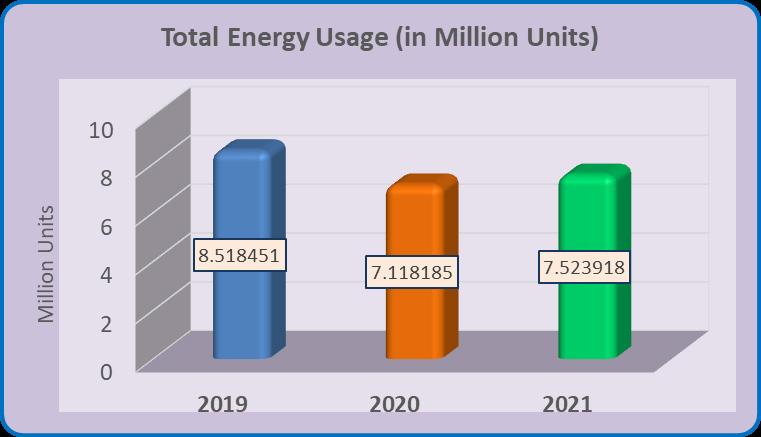
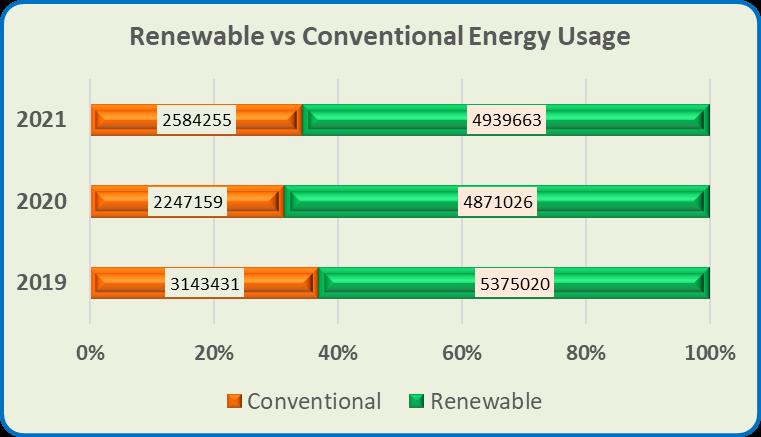
The Nitte Deemed to be University has on-campus Solar power generators. Power for the street lamps on all the campuses is sourced from solar panels. Solar Panels of about 500 KW capacity have been installed across the rooftops of most of the buildings on the university campus to maximize the use of on-site renewable energy generation wherever practical. Furthermore for use, clean energy is wheeled from various hydro, solar, and wind sources.
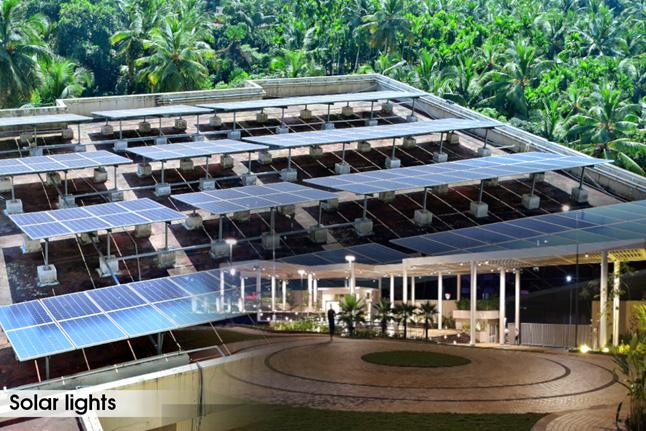
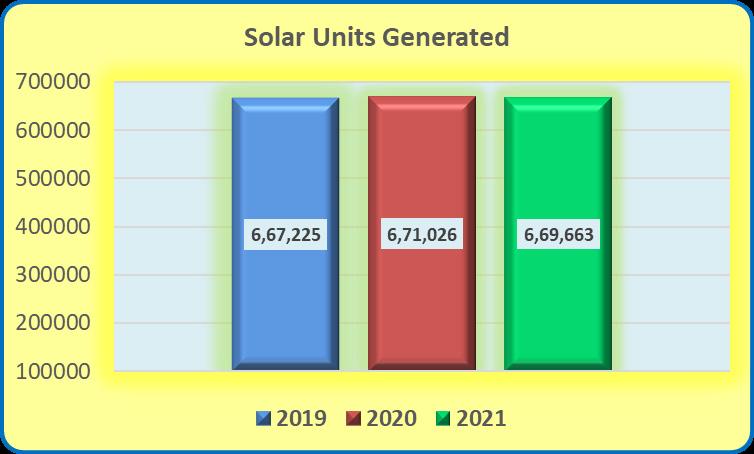
The Biogas unit is used for recycling organic waste. The biogas plant generates cooking gas for the common kitchen.
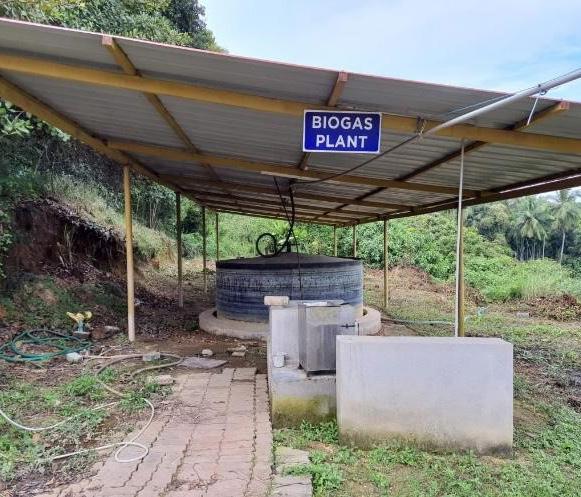
Energy savings measures: The University continues to replace conventional light fittings with energy-saving LED lights in a phased manner. Timers have been installed at various locations for switching on/ off security lights, which helps minimize energy consumption. Solar water heaters have been installed in all hostels to provide hot water to the residents. In all the critical areas, VFDs (Variable frequency drives) which help reduce running costs and improve the life of motors, have been installed. A synchronization panel/ Load manager has been provided for DG sets at all campuses to ensure optimum power generation utilization. Periodical maintenance / AMC of all electrical equipment, including panels, is carried out as per schedule. Additionally, all critical equipment has been provided with closely monitored AMC, which helps enhance the equipment’s life and reduces the mean time between failures.
Energy Audit: Energy conservation is the concern and responsibility of every member of the University, irrespective of their position. The University conducts regular energy audits to assess the usage and growth in demand due to rapid expansion. The energy audit aims to provide an information base for the overall energy conservation programme covering energy utilization analysis and evaluation of energy conservation measures along with a proactive effort to minimize environmental effects.
Green transportation: The University has an electric car to carry faculty and other staff between various office buildings within the university campus. There is also a battery- operated buggy to carry students from hostels to their college and hospital classrooms. Twenty cycles are made available for staff and students to commute within the university campus.
Staff, students and other employees are strongly encouraged to avail the common transport facilities provided by the University. There are 19 buses which cater to the standard mode of transportation. An additional six vans of 14-seater capacity regularly commute between campuses and the city to transport staff, students and other employees of the University.
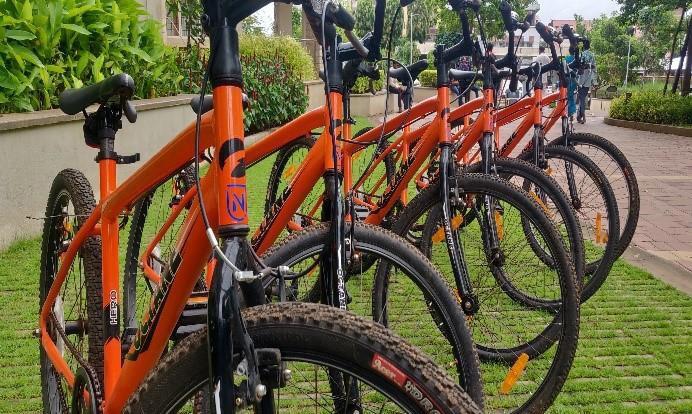
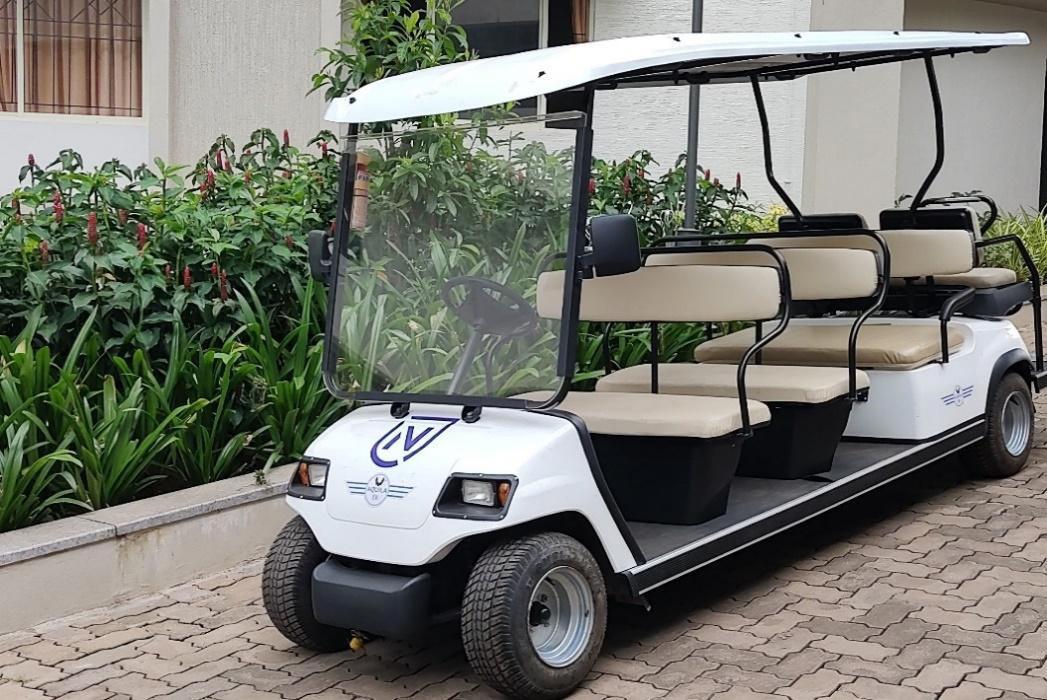
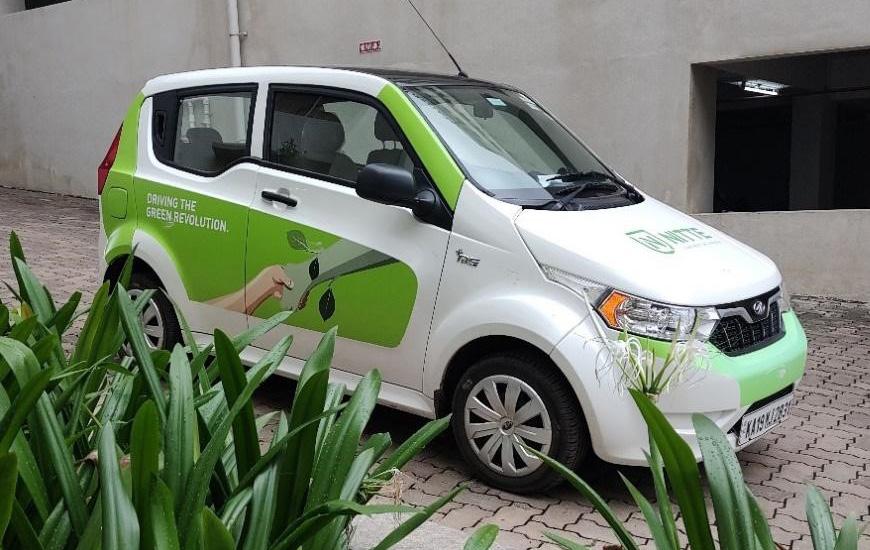
Green Buildings: The Building Science Lab at the Nitte Institute of Architecture aims to quantify the building’s energy performance.
Energy conservation awareness programs:
Nitte (DU) is committed to conserving energy. It believes energy saved is energy generated. Every institute is equipped with educational instructions in all classroom/seminar rooms and halls to switch off lights, fans, air conditioners and other electrical equipment after use. Electrical appliances have reminders to switch off after use displayed prominently near the switchboard. The elevators are accompanied by reminders to encourage commuters to use the steps and conserve electricity. The displays remind commuters to reduce their carbon footprint. The hospital wards have displays reminding the patient to conserve electricity.
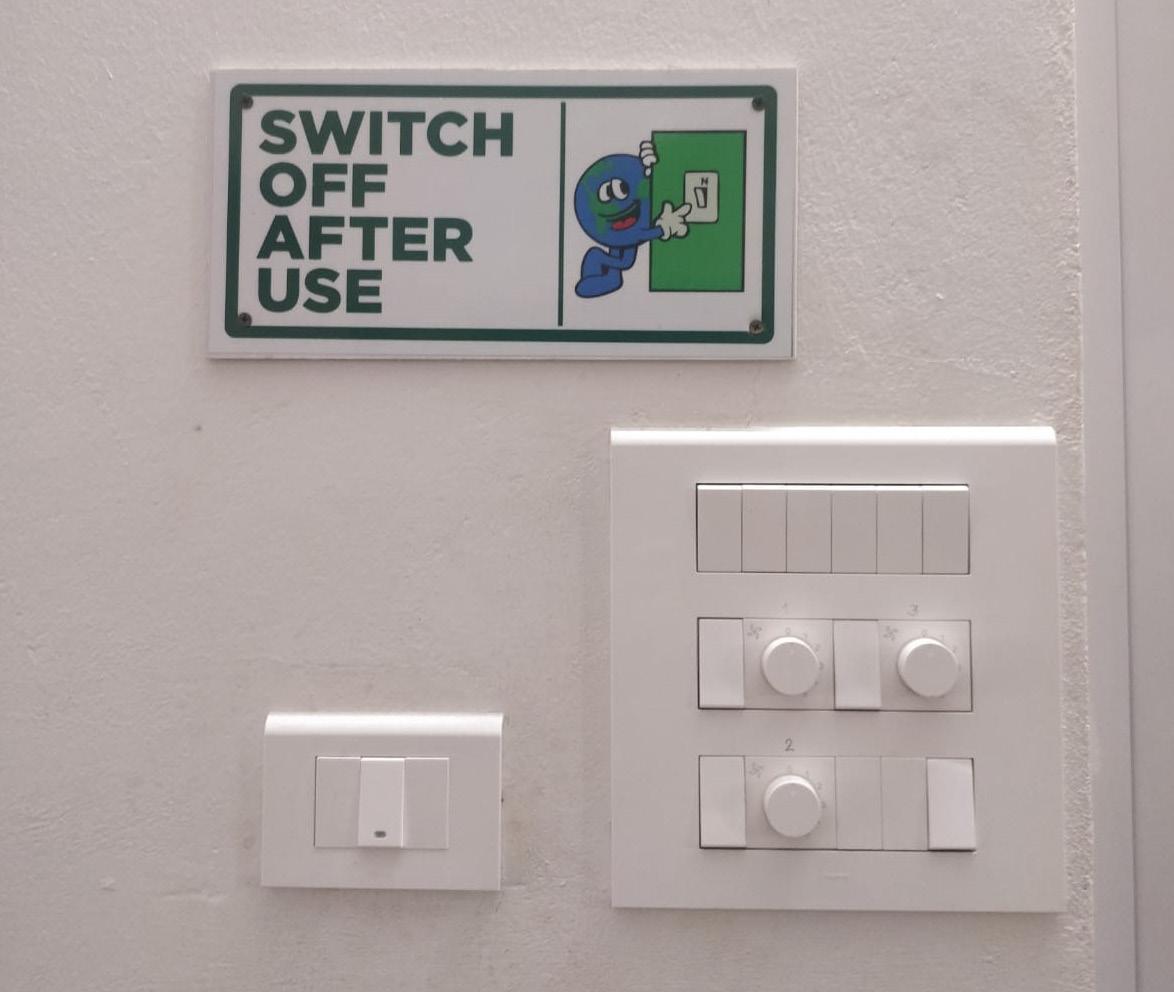
National energy conservation day 2021:
The event was organized by Institutional Innovation Council and Sustainable Development Goals Committee on 14th December 2021, celebrating National Energy Conservation Day. The purpose was to create awareness about energy conservation amongst students and staff. This year, the event was conducted through an online platform. Prof. Dr Smitha Hegde, Deputy Director, NUCSER, member secretary NUGIP and coordinator for Sustainable Development Goals, Nitte University, delivered the welcome address. She briefed on how energy conservation day is celebrated yearly at Nitte University. Prof Dr Satheesh Kumar Bhandary, Vice Chancellor of Nitte University, provided opening remarks to the event. He enlightened the audience on how energy conservation is practised in India and abroad and how the share of green and clean energy is increasing. He also briefed me about the various energy conservation measures the University is practising and plans for the future. The Guest of Honour and resource person was Mr Prashant Kumar Mishra, IAS and MD, MESCOM and an additional charge of MD, Mangaluru Smart City. He provided valuable information regarding the various steps that the government is taking in energy conservation. He reminded the audience of various measures that can be taken to achieve the goal. Our second resource person was Mr Shoumik Desai, Assistant Professor at Nitte Institute of Architecture. He highlighted the importance of energy conservation for sustainable living. Prof. Dr Srinikethan G., Director of technical research and President of the Institution. Dr Prashant Naik, Associate Professor (Paediatrics) and coordinator for SDG-7 was the moderator for the event.
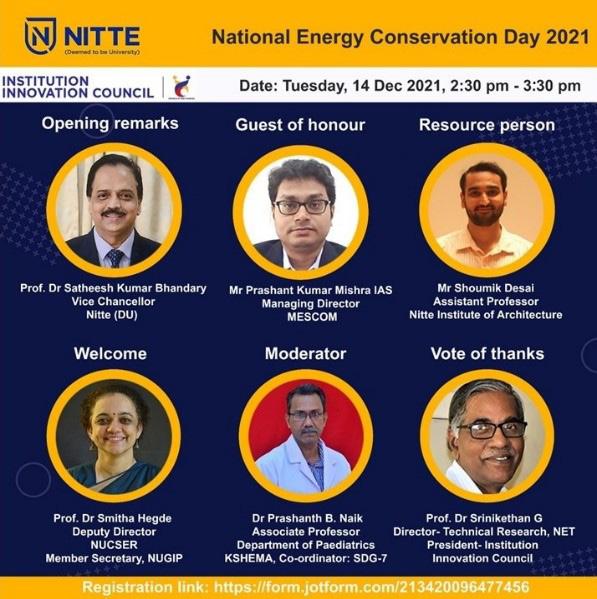
https://youtu.be/TKeQooLvhtM
Education and Research:
Nitte Institute of Architecture provides a Bachelor of Architecture program. Approximately 50-60 students are enrolled in these courses per year. The program incorporates courses related to energy-efficient and sustainable architecture, intelligent buildings, and LEED lab, which includes LEED certification, energy conservation building code, solar energy for lighting, green buildings, renewable energy, and energy- efficient design for buildings as elective subjects for students. These programs support creative exploration and nurture students’ journey towards sustainable architectural practice. The University has Architecture Design Studio 2 and Environmental Design Studio, and active research is being conducted on constructing green buildings suitable for the climate.
Awards: Master Abhay Puranik of Class 8, from Dr N. Shankara Adyanthaya Memorial English Medium High School of Nitte education trust, had couriered his Project idea of ‘POWER GENERATION FROM WASTEWATER MANAGEMENT’ to the Hon’ble Prime Minister, Shri Narendra Modi and his idea was referred to Karnataka Renewable Energy Development Limited for which the student has received a letter of appreciation. If the KREDL Authorities approve the said technology, he will be given full support in developing it further.
A Sustainable Approach for future expansion: The Master Plan of the upcoming campus expansion aligns with the University’s commitment to creating sustainable and regenerative spaces with minimal environmental impact and will set exemplary standards in sustainable landscapes.


.png)